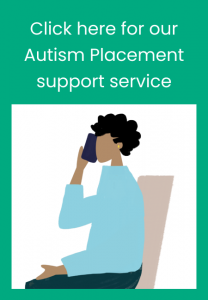How to plan for holidays for an autistic person
As the summer holidays approach, many families and carers will be asking themselves how best to plan for the holidays for a person with autism.
Autism affects every individual in different ways; however, there are some general tips that could help.
Many autistic people become anxious if they do not know what is going to happen, because it is difficult for them to imagine the unknown. Therefore, preparation is key.
Preparing the autistic person for the outing
You need to prepare the person with autism for the outing and below are some ways you can do this –
- Create a picture book of the place you will visit and the people you might be visiting
- Make a social story of your proposed outing in whichever form is best for the person, whether that is in words, symbols, drawings or photographs
- Create a planner showing what will happen on each day during the run-up to the outing
- If possible, make a practice run so that they can see where they will be going
- Play videos or virtual tours of the places you will be visiting
- Help them to tell you what sorts of things they might like or dislike whilst on holiday and make a folder of these things
- Devise some rules together of what they can or cannot do during the outing
Be prepared yourself
A few tips for preparing yourself for the outing are –
-
- Do as much research as possible into the place you will be visiting
- If the person has special eating habits, be prepared to accommodate these by taking special foods with you if you can or finding out where you can get the special foods at the place you are visiting
- Ring the place you are visiting in advance to let them know of any special requirements you will have
- If you need a quieter environment, ask the place you are visiting what times are the quietest for them
- If you need to take into account sensory issues, find out in advance about the area, eg if specific noises are a problem, find out whether there is a likelihood of such things as planes flying, dogs barking, children screeching; if smells can be an issue, find out whether there are smells consistently present, such as from restaurants or farms
- If the person with autism has comfort possessions, be sure to take these with you, as well as back-ups in case of damage or loss
- Try to do a risk assessment prior to the visit and put in place preventative measures where possible
Preparing the place you are visiting
Many public places are pleased to accommodate various special needs and appreciate it if you let them know in advance of any requirements you might have. Therefore, ring in advance if you need –
- Quiet spaces
- Special foods
- Specific sensory requests
- Special introduction to the venue, eg a staff member coming out to meet and greet prior to entrance
Advantages of outings
Although a lot of preparation is required when having an outing with a person with autism, there are many advantages that make the efforts worthwhile. Every new experience expands the world for someone who is autistic. If that new experience can be made pleasurable, they can then build upon that to repeat the experience and also to try out new experiences. The key is to try to reduce anxiety and fear of the unknown as much as possible.
In new environments a person with autism can also generalise skills they have learnt in familiar environments, thus reinforcing these skills further.
Whilst exploring different leisure and recreational skills, the autistic person could find an interest they really enjoy and enjoyments should be one of the ultimate aims of holiday outings.
Prepare, learn, enjoy
Editor’s note
For our friends in the United States, you will find some helpful tips in this accessible guide to flying for people with disabilities –
Accessible Guide to Flying for People with Disabilities



